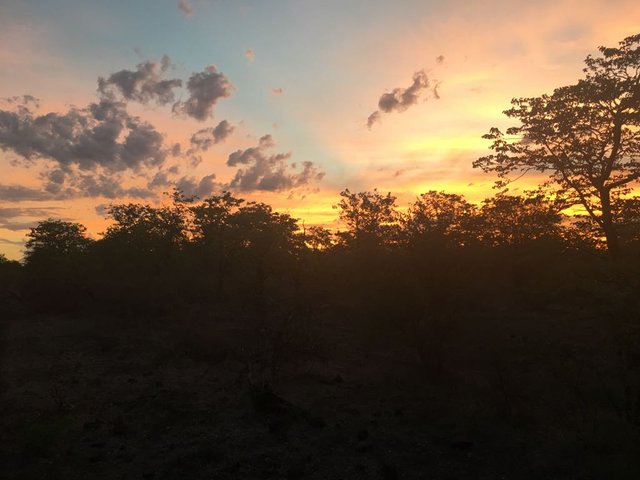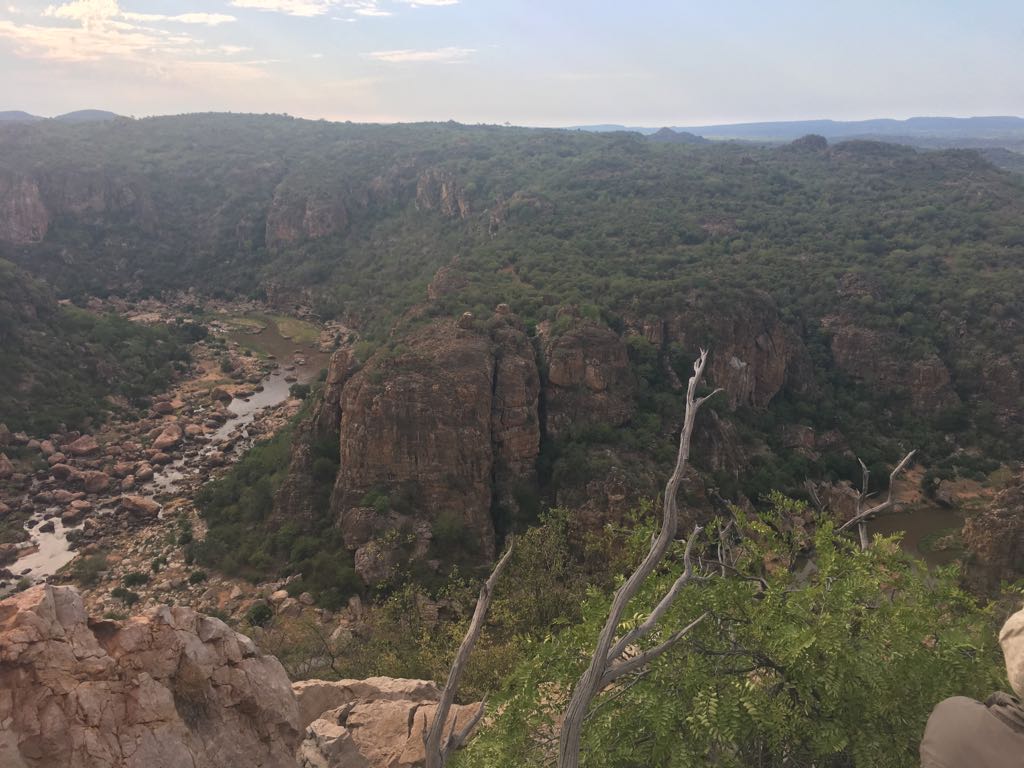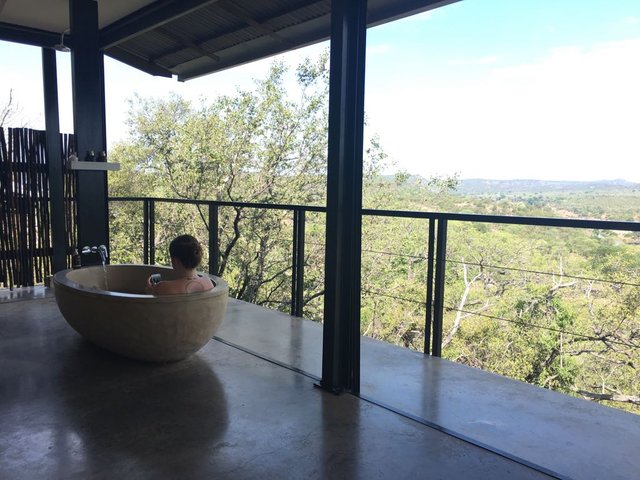African imaginings: Two rivers, an unlikely ornithologist and nothing not to love
There are places in Africa where the thorn trees scratch at the sky on the horizon, and the sun bleeds light. White, unforgiving, heat. There are places in Africa where the more timid scrub – stubby, shy, plump with hoarded water – doesn’t dare paw at the air. It squats, fatly, in hope of rain. The rain seldom comes.

There are places in Africa where the difference between these two cultures of plant and air is only a mountain or river. The Makuleke Region is one such place.
Scythed in two by the Luvuvhu River, the northernmost part of the Kruger National Park is home to startlingly different landscapes. On the one side of the water, white sand, chubby baobabs, and clouds which scurry with unseemly haste across the milky horizon. The only thing paler than the riverbed sand, is the expanse of sky above it. On the other, Mopani and thorn jostle for space on packed riverbeds, jabbing at the sky, as if daring it, with pokes and prods, to produce something other than further and warmer sheets of heat.
And perched above a koppie, surveying it all, The Outpost Lodge.
The camp itself does its name justice. It is delightfully far from everything else, to which the no service signal on your cellphone attests.
The air is the sound of birds and baboons which yell at the horizon. The water is soft, the breeze cheeky, and the views remarkable.
The lodge’s main building emerges from the edge of a hillside. The 12 rooms (luxurious, en-suite) are scattered up the rockface, connected by a snaking Zimbabwean teak walkway. Each consists of a deck, closed on 3 sides and open to the veld below at the front. If you want, you can lower the blinds, and ensconce yourself in an expansive apartment. If you are sensible, however, you fling the curtains open (press the button which lifts the blinds), and embrace the novelty of sleeping, bathing and sun-tanning at eye level with an eagle.
The hours are long. The hands of the clock saunter in slow circles, affected, no doubt, buy the impressive heat. Life at the lodge follows a comforting, and agreeably lazy routine. Hosts Sandy and Mike Fennell have gone to great lengths to ensure that guests have as little to worry about – and remember – as possible whilst on holiday.
You are assigned a guide who attends to your every need, query and concern (largely elephant-related). They wake you at 5.30. You un-bleary your eyes, throw on some sort of clothing, and descend to the main lodge building, doing your best not to step on a dassie in the process. You’re treated to warm coffee and buttery rusks.
You go on a 4-hour round game drive, broken in the middle by Amarula coffee and crunchies. Breakfast is served upon your return. Then you are free to wallow in the pool (recommended) or lounge in your room and watch the storm clouds brew like weak coffee – without enthusiasm or resolution.
At 3.30, high tea is served, before you depart on your second 4-hour game drive, this time broken not by coffee, but sundowners. For the brief heaven when the moon and the sun share the sky, one wearing blue and the other pink, you’re treated to biltong, nuts and a g ‘n t under a baobab or at Crook’s Corner (the Confluence of Zimbabwe, Mozambique, and South Africa, as well as the Limpopo and Luvuvhu rivers).
The drives themselves are sublime, interesting, exciting, and – usually – bumpy. The Luvuvhu plain and the hills which surround it is the kind of place where Land Rovers are born and meet their maker. At pace, the dust on the sides of the vehicle falls into waves which mirror the ruts in the road. In low range, the tyres chew the rock which crumbles and capitulates as you lumber up the hills near fever tree forest. On the banks of the Limpopo, you sink in the sand, and then rise, slithering your way between Lala Palms and Mopani.

If you are lucky, your guide is Samuel Kapenga, self-made ornithologist, and author of an autobiography titled The Unlikely Bird Man. His smile is broad, his cheekbones high, and his hands the size of side plates. He has an encyclopaedic knowledge of the region’s birds and can name hundreds by the sound of their call alone. He can also recite their number in Robertson’s bird book, favoured habit, and quirks. The book details his journey from nightwatchman at a small school, to bird expert and esteemed tour guide.
Samuel is a happy product of the troubled history of the region.
The property on which the lodge is built forms part of The Makuleke Contractual Park. The land, which was occupied by the Makuleke Community for nearly a decade and a half prior to their forced removal in the 60s, is now used for ecotourism purposes only after the awarding of a judgement which recognised the community’s rights to the land. The Makuleke Community then awarded a 30 year concession to The Outpost. The idea is that, by the end of the 30 year concession, the entire lodge will be returned to Makuleke Community to be run for their own benefit. At present, due to the concession, 10% of the lodge’s turnover goes to the community. Part of this money is available to members of the community – like Samuel – to complete training as ecotourism guides.
Aside from his exhaustive knowledge of the region’s feathered inhabitants, he is also a font of interesting facts about other animals. Don’t try to help the leopard tortoises you see crossing the roads. They carry extra water (a month’s worth) inside them. When you pick them up, they get anxious (quite reasonably), and ‘drop’ their water (pee with fright). Doves and pigeons are the only birds which can suck (go figure). Scrub hares eat their own poo (!?). He is an exceptional guide; engaging, considered, and helpful.
The people and the place are unparalleled.

If you love baobabs more than is reasonable (as I do), and are keen to make acquaintance with the Park’s smaller game, the region is paradise and great to visit in summer. But, this season is hot. Phenomenally so. It’s the sort of uniquely sub-Saharan heat that seems to simultaneously expand and contract; pulling you out at the seams with leaching dryness and compressing you down with the force of the glare. The effect is that you’re reduced, between the hours of 11am and 4pm, to a sort of human pancake, reconstitutable only when placed in the pool, or with the addition of beer (or both). If you are after the Big 5, or do not tolerate hotness well, a winter or autumn trip is advisable – the scrub thins out so viewing is better, and the sun learns some mercy.
Aside from climatic considerations, though, there is no argument to be made against visiting. The care and consideration which go into the running of the place is considerable – from chef Johann who goes to any length to cater to picky eaters and packs lunches for guests who leave by car, to the placement of umbrellas at convenient points all around the lodge lest you get caught out-of-cover when a cloud cracks and the sky leaks hot rain.
The Outpost Lodge is exemplary of what happens when gems of people, place and position come together.
*This piece was originally posted in another account created by the author.
Congratulations @inandoutofafrica! You have completed some achievement on Steemit and have been rewarded with new badge(s) :
Click on any badge to view your own Board of Honor on SteemitBoard.
For more information about SteemitBoard, click here
If you no longer want to receive notifications, reply to this comment with the word
STOPNooooice!
Nice place you have
Thank you so much - really appreciate it
Keep on steeming!